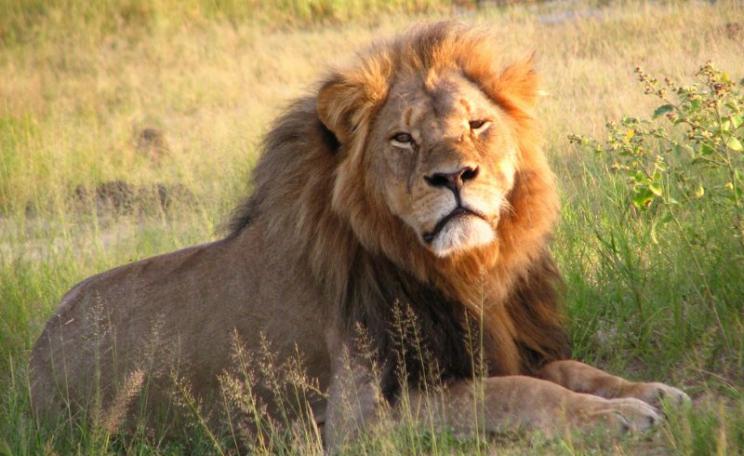-
The UK government frequently claims it is a world leader in welfare. But is this really the case?
The Animal Health and Welfare Board of England (AHWBE) is a key public body providing advice on welfare at the heart of government. It was established by Defra in 2011 under the Conservative-led coalition Government, and is the ‘principal source of departmental advice to Defra ministers on all strategic health and welfare matters relating to kept animals in England’.
Michael Seals was appointed as the chair in 2011 and continues in his post today. Seals is a livestock and arable farmer who also established the National Fallen Stock Company. He has also been a committee member for the National Farmers Union (NFU). Seals was appointed by the Conservative agriculture and food minister James Paice. Paice himself has a background in farming.
Welfare codes
In 2012 the AHWBE made its first recommendation. The Board had been invited by Defra to give a steer on the future approach to updating statutory farm animal welfare codes. Animal welfare codes include both legal requirements and good practice.
The codes provide information about how to meet welfare needs of animals and they can be used in courts as evidence in cruelty prosecution cases.
The board recommended that Defra should not update the statutory codes, but replace these with non-statutory guidance. The non-statutory guidance would be produced by the farming industry and government.
Defra followed the AHWBE advice. Liz Truss, the Conservative environment secretary at that time, announced that the statutory codes would be scrapped and replaced with guidance produced by the farming industry.
According to the Guardian, the government had ‘quietly tabled a draft order’ to scrap the official code on farming chickens for meat and breeding. The British Poultry Council—an industry body—would issue new guidelines and would be in charge of updating them.
Public uproar
Not surprisingly, the government’s decision to scrap the codes was strongly opposed by animal welfare organisations such as the Royal Society for the Prevention of Cruelty to Animals (RSPCA) and Compassion in World Farming (CIWF). Defra’s proposal caused a public uproar and the government was forced to u-turn on its decision.
The government policy to scrap the codes and its subsequent u-turn was widely reported at the time. The AHWBE’s role, however, was not.
It was not reported that it had been a taxpayer-funded public body with a role to provide advice on animal welfare that had first proposed the policy. Scrapping the statutory animal welfare codes and replacing them with industry-led guidance would be an enormous loss for animal protection.
It is highly likely that the codes would be watered down over time. Furthermore, guidance would not have the legal force that the statutory codes had in the courts.
It should be self-evident that a farmer does not have the requisite expertise to chair a public body providing strategic advice to government on animal health and welfare. The chair of such a body, together with its membership, should have recognised expertise in animal health and welfare.
Conflicts of interest
In 2015 the Farmer’s Weekly reported that Michael Seal’s farm had gone down with bovine TB. Eight of his pedigree South Devon suckler cows had tested positive. Seal’s himself writes: "It was quite an emotional moment. This was a home-bred animal, born here in 2010. It was immensely frustrating because we knew the cow very well as an individual."
The fact that Seals’ own beef farm went down with bovine TB, and his response to this, is clear evidence of not only the conflict of interests any beef or dairy farmer would have, but how going down with bovine TB might affect decision making.
Why is the British taxpaying public funding a key public body at the heart of government that is chaired by an individual without the requisite expertise and with clear conflicts of interests?
But the conflict of interests does not end with the chair. Amongst AHWBE members’ register of interests includes membership of the Vale of Lune Hunt, and consultancy work or direct employment by the Irish Greyhound Board and Microware Pig Systems.
The hunting of wild mammals was banned in England and Wales in 2004 under the Hunting Act. The Vale of Lune Harriers continues to meet on Wednesdays and Saturdays. Visceral opposition to the hunting of foxes, hares and other wildlife is so universal amongst the animal welfare community it is almost a defining feature.
Genuine interest
If dogs truly are man’s best friend, then greyhound racing represents an abusive relationship. We do not instrumentalise and discard our friends in the way that greyhound racing does. The Dogs Trust has stated in 2016 that it was "extremely disappointed" at Defra’s "weak stance" on legislating for greyhound welfare.
Microware Pig Systems sells indoor electronic sow feeding systems. Millions of pigs raised in indoor systems suffer in a barren environment with insufficient stimulation. Indoor pigs are not able to perform strongly motivated natural behaviours such as rooting and nesting.
Why are the British public funding an official body to advise on animal welfare with members that declare interests in fox hunting and greyhound racing?
Why does a former chairman of the National Pig Association sit on the AWHBE, but not senior officials of the RSPCA or CIWF, which are organisations that exist to promote animal welfare?
The AHWBE proposal to abolish statutory codes and replace them with industry guidance is clear evidence of a major conflict of interests. No body with a genuine interest in animal health and welfare would propose such a policy.
This is clear from the strong opposition from animal protection organisation such as the RSPCA and CIWF, Parliamentary champions of animal welfare, and the British public.
Deregulation
The AHWBE is a clear case of the capture of animal welfare regulation by the farming industry at the heart of government. Seals himself has stated that the AHWBE is a "once in a lifetime opportunity to empower farmers and animal keepers".
The state of affairs has arisen because of the deregulatory nature of Conservative party policy on animal health and welfare and its unhealthy proximity to the farming industry. In the AHWBE, the farming industry is clearly leading on policy making on animal health and welfare.
I have great respect for farmers. Farmers have a fundamental role in society, but they are not experts in animal health and welfare. Farmers should have a minimal role in animal health and welfare bodies.
Public bodies advising on animal health and welfare certainly should not be chaired by farmers, both because of a lack of expertise and due to an undeniable conflict of interests. Consider the uproar if the chief executive of Shell was appointed to lead the Environment Agency. Or what about the CEO of British American Tobacco chairing Public Health England?
Scrutiny
Going forward, there must be far greater scrutiny of animal health and welfare public bodies. This includes the background and interests of the chairperson and members.
The media, public and animal protection NGOs all have a role to play. But the AHWBE is beyond reform and should be abolished. It should be replaced with a fully independent Animal Protection Commission.
This body would support governments in fulfilling their duties to animals, ensuring decisions are underpinned by the best scientific and ethics expertise. It would conduct rigorous animal welfare impact assessments on policy options.
The new Animal Protection Commission should be chaired and filled with individuals with genuine expertise in animal welfare, policy and ethics. This includes the many experts that work in leading animal protection organisations in the UK, the genuine guardians of animal welfare.
The animal protection lobby, and indeed the British public, should be up in arms about the AHWBE. In a nation with a unique history in leading in animal welfare, there is currently a wolf in sheep’s clothing at the heart of government.
This Author
Steven McCulloch is Senior Lecturer in Human-Animal Studies at the University of Winchester. He qualified as a veterinary surgeon in 2002 from Bristol University and holds a BA Philosophy from Birbeck College, University of London. He has a PhD from the Royal Veterinary College, London on the political representation of animals.
Image: Sandra Petersen, Pixabay.




